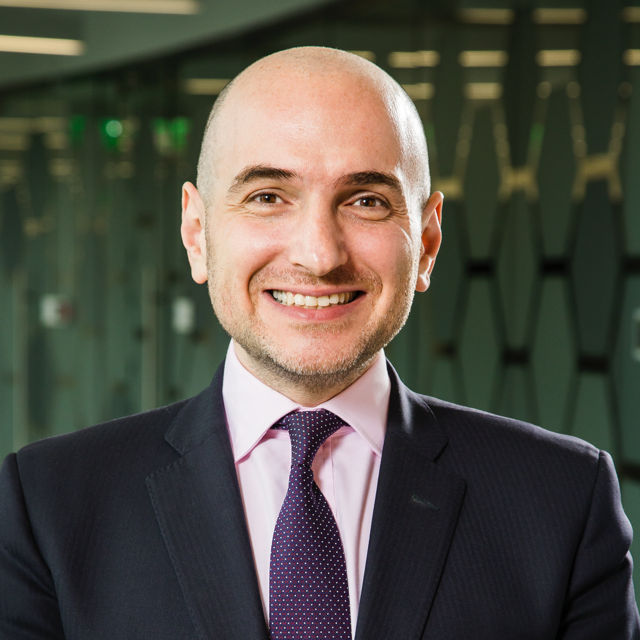When you serve as chief legal counsel for a company known as a digital finance innovator you need to have a keen eye for tech trends while watching for possible obstacles that could impede those goals. That’s the role Alan Konevsky fills at tZERO, and it’s one that gives him a front-row seat for the future of finance.
The biggest challenge is to proceed with innovation while maintaining compliance and that requires a diverse tool kit including the ability to listen to the perspectives of other parties with their own needs, such as regulators and established financial institutions. Keep a regular dialogue and don’t try to force anything down their throats.
There are no shortage of possibilities on the technology front, where tZERO is bringing blockchain technology to capital markets through the issuance, trading and settlement of securities. It is partnering with the Boston Options Exchange to develop a national securities mechanism allowing investors to trade blockchain-enabled securities. That will provide issuers with new means of raising capital. That, along with other developments will provide retail investors with greater access to digital investing.
tZERO is also licensed as a money transfer operator, with users able to trade three major cryptocurrencies while safely storing their assets on their personal device.
Mr. Konevsky is well-suited to mixing innovation and compliance. As a senior VP at Mastercard, he lead their global strategic initiatives with technology, coordinating the efforts of their global legal teams as they maintained compliance across jurisdictions. He also worked with major investment banks, assisting them with strategic investments in technology.

“The theme of navigating highly-regulated yet evolving ecosystems ran through my career so tZERO was a natural fit,” Mr. Konevsky said.
Blockchain technology promises to bring great efficiency to global finance and if looked at in a certain way is simply a technologically superior rail for transferring securities and payments while improving trust and transparency, he said. That is how innovators view it but they cannot expect all stakeholders to share that zeal; each has to be dealt with in their own way. Regulators of course need to be educated about the benefits the technology brings such as efficiency, but they also have to be assured investors are protected and their assets will remain secure.
“You explain the benefits of what you are trying to do, and it’s not all that dramatic,” Mr. Konevsky said. “You’re shifting rails and data bases.”
Regulators will never allow new technology to be introduced at scale into the ecosystem until they understand the intended and unintended consequences it brings, he added. With blockchain and its immutable ledger, how do you address an improper or unauthorized transfer of assets? How do you unwind such a transaction?
Compare it to existing legacy tools, show how it’s better. Explain how the old, now invalid security can be quickly replaced with a new one, illustrating how the new way is quicker and more responsive.
“You have to think through things step by step,” Mr. Konevsky said.
When explaining a blockchain-based system, for example, take incremental steps. Break the overall vision down into smaller sections. Explain such benefits as secondary liquidity, a lower cost of capital and the opportunity for investors to participate in new asset classes.
Mr. Konevsky is bullish on tokenization. It offers people anywhere in the world the ability to trade without layers of intermediaries. Real estate and ETFs are two strong sectors, as they are historical avenues to wealth that up until blockchain technology came along provided barriers to smaller investors. He also looks to private companies who are deeper into their funding rounds, those with a deep cap table but little secondary liquidity.
The Biden Era begins with many challenges, and it will be interesting to see who occupies key senior political vacancies, Mr. Konevsky said. Don’y necessarily look for direct action on fintech -related issues but look for the level of responsiveness on those areas that allow fintech to support growth. While some regions operate with sandboxes that drive development, expect the United States to be more pragmatic in its approach.
Incremental gains will also be what we can expect for cryptocurrencies in 2021, Mr. Konevsky expects. While only a narrow sliver of investors currently participate, there is a growing global acceptance of crypto’s ability to deliver a frictionless payment experience. Add in such developments as asset managers devoting some of their portfolios to crypto and speaking of it as a value store and acceptance slowly grows.
Stateside, watch for the impact of larger DLT projects such as Libra and the effect they can have on American policy, Mr. Konevsky said.









